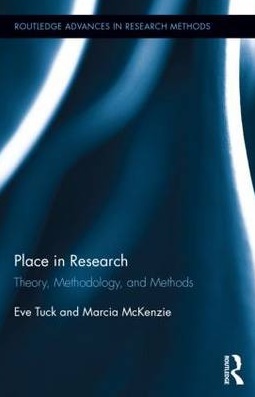
Place in Research : Theory, Methodology, and Methods
[Book Description]
Bridging environmental and Indigenous studies and drawing on critical geography, spatial theory, new materialist theory, and decolonizing theory, this dynamic volume examines the sometimes overlooked significance of place in social science research. There are often important divergences and even competing logics at work in these areas of research, some which may indeed be incommensurable. This volume explores how researchers around the globe are coming to terms - both theoretically and practically - with place in the context of settler colonialism, globalization, and environmental degradation. Tuck and McKenzie outline a trajectory of critical place inquiry that not only furthers empirical knowledge, but ethically imagines new possibilities for collaboration and action. Critical place inquiry can involve a range of research methodologies; this volume argues that what matters is how the chosen methodology engages conceptually with place in order to mobilize methods that enable data collection and analyses that address place explicitly and politically.Unlike other approaches that attempt to superficially tag on Indigenous concerns, decolonizing conceptualizations of land and place and Indigenous methods are central, not peripheral, to practices of critical place inquiry.
[Table of Contents]
Figures ix
Tables xi
Preface xiii
Acknowledgments xix
1 Introduction to Place in Research 1 (24)
PART I
2 Conceptualizing Place 25 (23)
3 Decolonizing Perspectives on Place 48 (27)
PART II
4 Methodologies of Critical Place Inquiry 75 (22)
5 Methods of Critical Place Inquiry 97 (29)
6 Indigenous Methods of Critical Place 126 (24)
Inquiry
7 Ethical Imperatives of Critical Place 150 (17)
Inquiry
Author Biographies 167 (2)
References 169 (20)
Index 189

 新书报道
新书报道